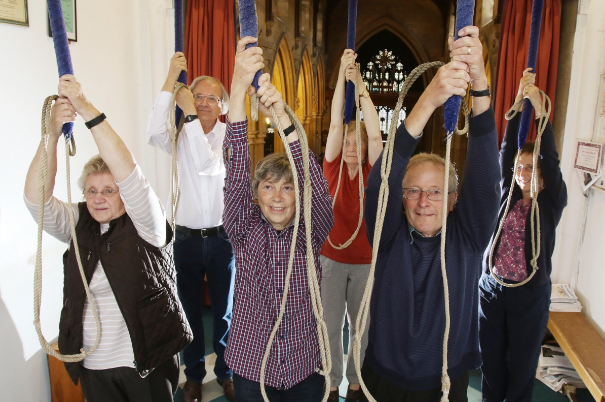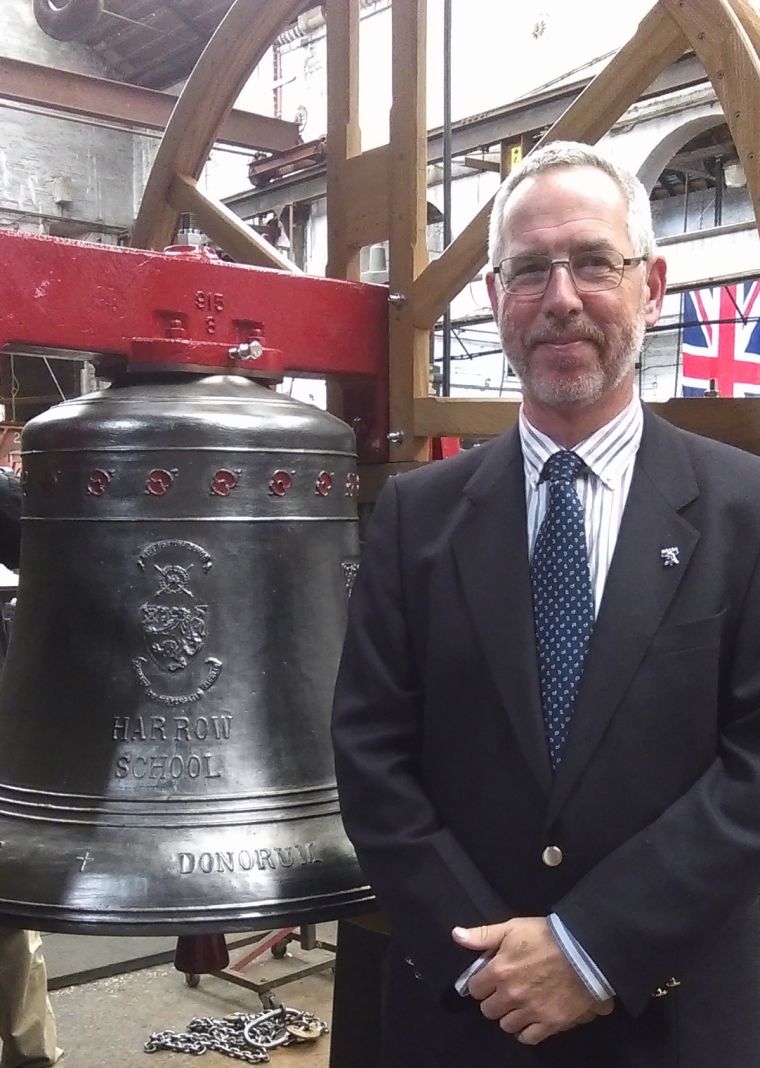30,000 bellringers can't be wrong. So what's so great about the Church?
Last weekend, to mark Heritage Open Days, Ecclesiastical, the UK's leading insurer of Grade Ilsted buildings, combined forces with the Central Council of Church Bell Ringers to celebrate the role churches play in their local communities.

The effort follows findings last month from Ecclesiastical, reported by Christian Today, that showed the role of churches in tackling some of society's biggest problems, such as poverty and dementia, is largely invisible.
Three quarters of UK adults cannot name any of the activities that take place inside their local church other than regular services and religious festivals, according to the research.
To counter this, some 30,000 bellringers descended on churches and cathedrals over the course of the weekend to ring out their support.
One of those was Christopher O'Mahony, of the Central Council of Church Bell Ringers.
Last weekend he was at his usual church, St Mary's Harrow on the Hill, revealing to ordinary members of the public, Christian and non-Christian alike, how bellringing is done.

'We were opening up our church buildings to show people what is going on, opening up our bell towers so people can come and see what s really going on up there so they are getting close experience of living heritage,' O'Mahony tells Christian Today.
Originally from Australia, O'Mahony 'did a lot of bell ringing in Sydney' including at St Mary's (Catholic) Cathedral and St Andrew's (Anglican) Cathedral.
And when he moved to Britain 10 years ago, he got straight into the bellringing scene.
'It's a unique volunteer hobby and activity I learned when I was a choirboy back in Sydney 30 years ago. The churches are our landlords and bells are in churches and they need people to ring them,' he explains. 'Historically, bellringers have come from congregations but increasingly come for all sorts of reasons, including social. I love it because I know I am involved in a unique activity.'
Bells are rung in churches to summon people for services, of course, but also during those services and Masses to demonstrate to the outside world that something is happening inside, such as the blessing of the sacraments in the build-up to Communion.
'All across English speaking world churches use their bells like an external choir – we are calling out to show there is something very special going on inside the church.'
This is on 'feast days, high days, holy days, but also secular events as well' such as what O'Mahony calls 'life events' including christenings and funerals and showing 'a degree of connectedness' between the two.
On secular side, bells are rung for the Olympics, Coronations and Armistice Day. 'We have been doing a lot of work over the four years of the centenary of the First World War: at my church we muffle our bells to remember the 60-odd parishioners who lost their lives.'
Other events which merit bellringing include ordinations, and O'Mahony explains that a fellow local ringer at his parish church is also member of the Middlesex Association, which each year provides ringers at St Paul's Cathedral for ordinations – 'and we are delighted to be part of it'.
As for Ecclesiastical's research, O'Mahoney says that he wants to 'highlight that link with what the church provides in the community – all those social services that are provided quietly, that concept of the "Big Society" taking over from unsustainable central government services.'
After all, in the Church of England alone, more than 80,000 volunteers help over 2,700 church staff provide support and activities for children, young people, families and the elderly. Some 100,000 children and young people participate in activities connected to the church, and 54 per cent of UK churches run activities each month to meet a social need in their area including loneliness, homelessness, debt, low income, unemployment, addiction or family breakdown.
O'Mahoney adds: 'One of the things we have been working on with Ecclesiastical is there is a little bit of a risk that we are going to lose something precious – let's not take these for granted, let's remember how precious this lovely sound is.
'Bell ringing is what we would call part of the soundscape of the nation.'
Anyone wishing to get involved in bellringing can visit www.cccbr.org.uk and www.bellringing.org











